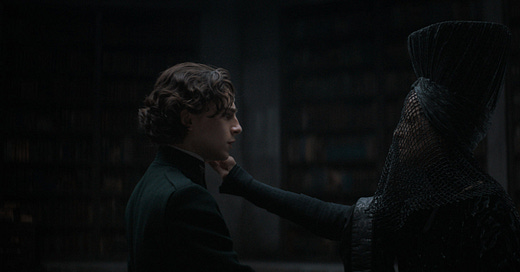Writing
First, an appetizer: for Fare Forward I wrote about Wes Anderson’s The French Dispatch. It’s a lot of fun! I think it might be his most visually creative movie even, which is really saying something. If you you are Anderson-agnostic, this one is unlikely to change your opinion of him, and if you’re Anderson-antagonistic, well, keep scrolling…




